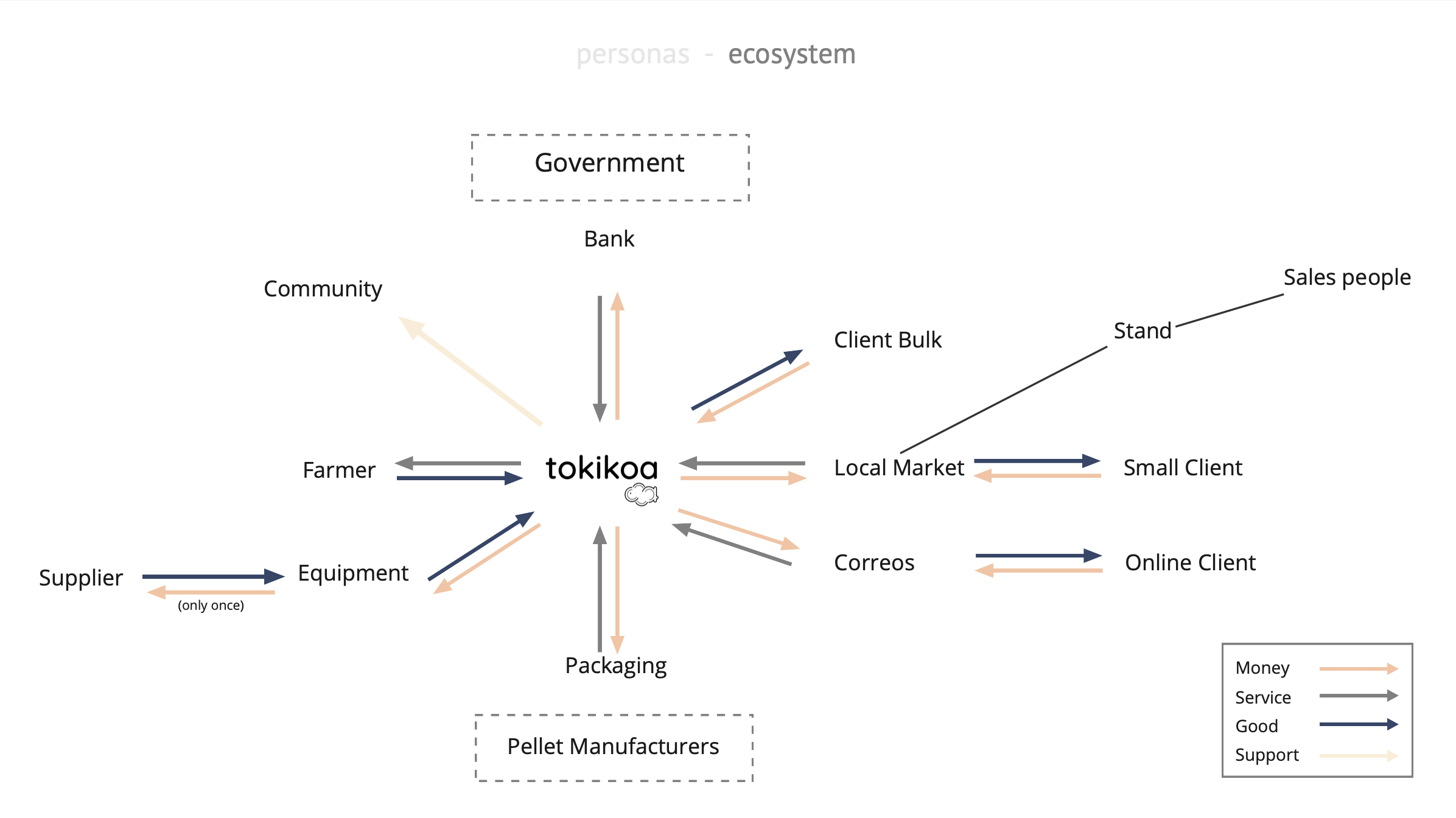
Strategic & UX Design
-
"Tokikoa" means ‘local’ in Basque language and the project presents a regenerative business concept targeting the Basque Country, addressing the issue of wasted Lana Latxa wool stored in farm facilities. Farmers and shepherds face challenges storing this flame-resistant wool, classified as a Category 3 animal byproduct by the European Commission, prohibiting its disposal as compost. Our proposal suggests a regenerative approach—converting the wool into small pellet fertilizers to enrich the very soil sustaining these sheep.
-
Lana Latxa is a breed of sheep native to the Basque Country, particularly in the region of Navarre, Spain. The breed is known for its distinctive characteristics and is primarily raised for its milk, which is used to produce Idiazabal cheese, a renowned cheese in the Basque region.
However, like many traditional breeds, Lana Latxa faces several challenges and problems that impact its sustainability and population, while the main one we focussed on was the fact that it is extremely hard to get rid of it as due to productions changes in milk consumption the sheeps wool changed a lot:
Genetic Diversity and Conservation: One major concern for Lana Latxa is the declining genetic diversity within the breed. Modern agricultural practices and a focus on high milk production have led to a decrease in genetic variation. This reduction in diversity can make the breed more susceptible to diseases and environmental changes.
Market Demand and Economic Viability: Changes in consumer preferences and market demands pose a challenge for Lana Latxa breeders. The demand for high milk production often conflicts with the preservation of the breed's original characteristics. Balancing traditional breed features and modern market demands while ensuring economic viability is a complex issue.
Land Use and Grazing Space: Urbanization and changes in land use patterns have reduced the availability of grazing land for Lana Latxa sheep. This limits their ability to graze freely, impacting their overall health and potentially reducing the quality and quantity of milk they produce.
Climate Change and Environmental Stressors: Climate change brings about extreme weather events, altered grazing patterns, and increased susceptibility to diseases. Lana Latxa, being adapted to a specific environment, may struggle to adapt to these rapid environmental changes, affecting their overall health and productivity.
Disease and Health Management: Like any livestock, Lana Latxa is susceptible to various diseases. Effective health management and disease prevention strategies are crucial to maintain a healthy population. Disease outbreaks can severely impact the overall productivity and well-being of the breed.
Modern Farming Practices: The introduction of modern farming practices often involves crossbreeding Lana Latxa with other sheep breeds to enhance milk production. While this may lead to increased milk yields, it can dilute the breed's unique characteristics and potentially lead to the extinction of the pure Lana Latxa lineage.
-
This project emphasizes strategic business design to establish a socially impactful business model. It entailed crafting customer journeys, personas, and blueprints, backed by thorough and extensive research. The initial focus on the textile industry's challenges shifted towards a more narrow scope—Spain, specifically the Basque countryside, targeting the Lana Latxa issue.
-
This was a group project with Raquel Fajardo, Maria Roig, and Claire Villemeur in the class Design Studio IV, directed and taught by Xenia Viladas.
*Selected by Ecocity World Summit 2023
Tokikoa
2023
"Tokikoa" proposes a solution for Lana Latxa wool waste in the Basque Country. The idea involves processing the wool into fertilizing pellets to nurture the soil where the sheep graze.

Wordmark



Packaging

Personas















Ecosystem



Legal Issue

References_Interviews

References_Interviews

References_Interviews
